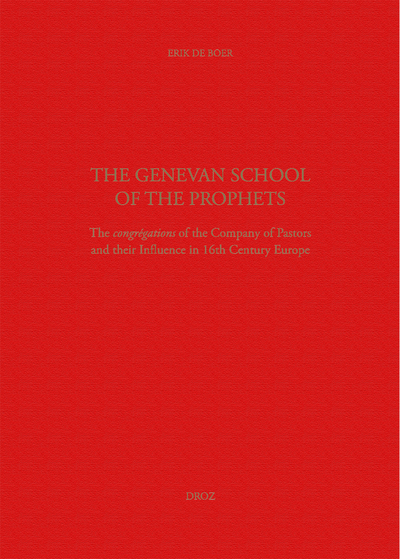- EAN13
- 9782600016117
- Éditeur
- Droz
- Date de publication
- 1 décembre 2012
- Collection
- TRAVAUX D'HUMANISME ET RENAISSANCE
- Nombre de pages
- 336
- Dimensions
- 25 x 17,5 cm
- Poids
- 860 g
The Genevan School Of The Prophets, The Congrégation Of The Company Of Pastors And Their Influence In The 16th Century
Erik De Boer
Droz
Prix public : 61,10 €
In the 16th Century the Bible was also studied collectively. Developing the Zurich model, the preachers of Geneva met weekly to study biblical books in lectio continua. In these congrégations every minister took his turn to present an exposition to his colleagues. In closed meetings the ministers held disputations on matters of doctrine and ethics and the voices of lesser known ministers are heard in surviving documents. In these collective studies, inspired exposition of Scripture was regarded as prophecy, fundamental to preaching of the Word. The first part of this book describes the structure and activities of this ecclesiastical institution on the basis of archival documents. The existence of a large body of manuscript texts on Joshua testifies to the esteem in which the congrégation's work was held. The second part analyses how the weekly Bible studies interacted with the implementation of Calvin's expository program. The third part traces the influence of Geneva until the 'prophesyings' in Puritanism, as other such forms of 'schools of the prophets' developed in France, England and the refugee churches.


















